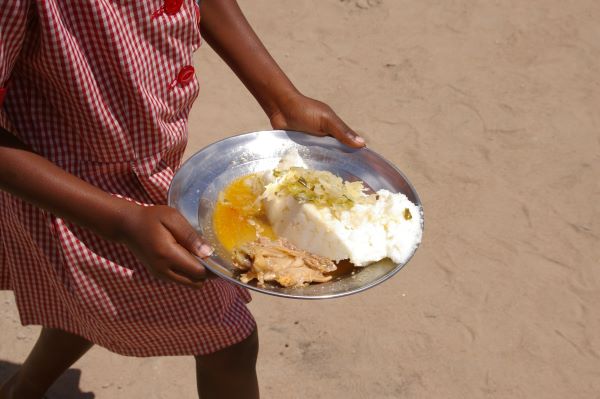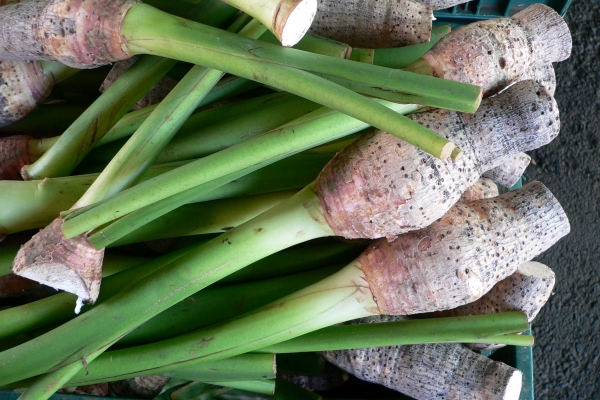Recently, as part of the HSRC’s commitment to community engagement, the organisation hosted an open dialogue in Cape Town’s Bo-Kaap district to share and discuss research findings on the impact of the pandemic in South Africa over the last year.
“Researchers are grateful for and rely on community participation in their surveys and research, and we want to take this work back to the people,” said Diana Sanchez Betancourt, a senior researcher in the HSRC’s Developmental, Capable and Ethical State research division (DCES) at the opening of the workshop. “The purpose of this community engagement was also for researchers to learn. Hearing community members’ views and insights helps us to explore future areas of research that has impact.”
The Bo-Kaap is one of the oldest communities in South Africa. Today, visitors to the area are greeted not only by the widely-known colourful homes, but walk the streets of the history of the Cape. The Auwal Mosque, built in 1794, still stands as an active centre within this deeply religious and culturally active community.
Attended by more than 20 people at the Bo-Kaap Cultural Hub, the event was one of the HSRC’s first non-digital engagements since the COVID-19 restrictions required most of its staff to work remotely.
Dr Stephen Rule, a research director in DCES, presented the recent data on vaccine acceptance and hesitancy from the UJ/HSRC COVID-19 Democracy Survey. Those who approved of the President’s handling of the pandemic were more likely to be willing to take a future vaccine, or to adhere to lockdown regulations such as wearing a facemask. Dr Saahier Parker, a senior research manager at the HSRC’s Impact Centre, shared findings on people’s COVID-19 knowledge and the sources of information on which they rely.
The effect of the COVID-19 pandemic on communities in South Africa has varied in intensity and nature. The trauma of losing their livelihoods, food security and mental-health concerns were some of the strong themes that emerged from the Bo-Kaap community members’ spoken and written feedback to the researchers.
Many Bo-Kaap residents make a living from the tourism and hospitality industry, which was hard hit by the COVID-19 restrictions. One community member said he had been without income for several months and had to resort to odd jobs as a driver or fast-food vendor.
“By October, my savings were depleted, so my experience with lockdown was a bitter pill to swallow and made me realise who my real friends were.”
A tour guide also highlighted the trauma experienced by former salary earners who struggled to access support due to feelings of shame and privacy concerns. “We are a close-knit community who support each other but some people find it difficult to ask for help.”
Masturah Adams, head of social welfare at the Bo-Kaap Cultural Hub, agreed, saying the Bo-Kaap had always supported a community of vulnerable people with food schemes and other support, but the residents now also have to find ways to support a different, and previously independent, group. Many of them have never experienced poverty or food insecurity.
The community was concerned about increasing levels of mental-health problems, including anxiety and depression.
“It hurts me to see how eager people are to work but they can’t,” one woman said. Fortunate to work from home, she made an effort to support the many small businesses that sprung up during 2020 but admitted she experienced feelings of guilt for being spared the brunt.
A 44-year-old woman wrote she felt lucky to be employed, albeit at a reduced salary:
“I had the opportunity to help on the Covid-19 response team. COVID-19 has taught me patience and gratitude, and it has also restored my faith in my Creator. I have, however, lost my faith in people as I believe the spread is from human to human and we don’t adhere to the simple rules.” – written submission
Two women who manage a local community vegetable garden said that, fortunately, the vegetables that had been planted in September 2019 were ready to be harvested when the sudden hard lockdown came.
“By 31 March 2020, we started to share the produce of the Bo-Kaap community garden daily with the community. It was a liberating and most humbling emotional roller-coaster ride. We have been teaching the youth about the garden and introduced home garden initiatives. We collaborate with the Department of Agriculture and the Western Cape Department of Parks by getting the community to grow their own food.” – written submission
“Rather than ‘giving’, we allowed people to come to the garden and take freely for themselves and their neighbours,” the women explained at the dialogue. After entry to the garden, the visitors were not scrutinised to protect them from experiencing shame. “There were no questions and no judgement.”
A 57-year-old man appreciated the opportunity to bond with his family during lockdown and was grateful that his son managed to continue studying through the University of South Africa.
“It was a different but special Ramadan experience in 2020 … but the mosque was closed and this was very sad; it left a void.” – written submission
The community members said they still struggled to process the volume of COVID-19 information disseminated by traditional and social media platforms. They emphasised the need for scientists, not only the government, to synthesise and communicate messages about COVID-19 science.
“We need to communicate research results to a wider community and help remove myths around vaccines and [explain their] practical application in the community by using the results of this research.” – written submission
One suggestion, based on the experiences of communities and research findings, was to produce a book with guidelines on how to respond to future disasters. Parker said that strengthening the relationship between science and society was a priority for the HSRC during and beyond COVID-19.
“Understanding the importance of protective public policy, effective public messaging and citizen engagement remains key toward building a civically responsive society. The importance of community engagement cannot be overemphasised.”
Contacts:
dsanchez@hsrc.ac.za
sparker@hsrc.ac.za
srule@hsrc.ac.za
The proceeds from hosting events at the Bo-Kaap Cultural Hub are used to fund the community’s food scheme. For bookings, contact: bkculturalhub@gmail.com
More:
Bo-Kaap community response to COVID-19: Living culture and tradition – HSRC Review, July 2020
A short video on lockdown in the Bo-Kaap – July 2020


